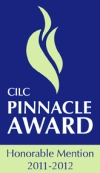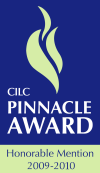 Did you miss this webinar? Check out the follow-up post for links to the slides, handouts and recording.
Did you miss this webinar? Check out the follow-up post for links to the slides, handouts and recording.
Global Trends in Language Learning in the 21st Century: Webinar
http://www.learncentral.org/node/86167
Tuesday, July 27, 2010
Login start: 09:45 Mountain Time
Webinar: 10:00 – 11:00 Mountain Time
In this webinar we’ll talk about the findings of my new study that reveals what’s hot and what’s not in language learning in the 21st century.
The study, “Global Trends in Language Learning in the Twenty-First Century”, found, among other things, that public speaking and presentation skills, even for second language students, are enjoying new levels of prestige in the Obama era. “For the first time in decades, there is a U.S. President who is wooing young people with his power to communicate verbally. This is having an impact not only in the United States, but across the globe. Second language speech contests, debates, poetry readings, and story telling are particularly trendy,” the report reveals.
This is just one of a number of new trends in language learning you’ll want to hear about. Join me as I share the highlights of this new research. The webinar will include a 20 minute presentation and 35 minutes for discussion.
How to join the webinar:
1) Mark the date and time of the event in your calendar
2) at 09:45 Mountain Time (adjust for your time zone!) on July 27, click on this URL:
https://sas.elluminate.com/site/external/launch/dropin.jnlp?sid=lcevents&password=Webinar_Guest
3) Have a pen and some paper handy to take notes.
With thanks to our sponsor, Elluminate (www.elluminate.com), for providing the technology to make this webinar available to you free of charge.
Remember to convert the time of this webinar to your own time zone. You can do this at http://www.timeanddate.com/worldclock/converter.html. In the top of the box where it asks you to “Select time and place to convert from” choose “Canada – Alberta – Canada”. In the box under that, select your country and closest city.
_______________
Like this post? Share or Tweet it: Global Trends in Language Learning in the 21st Century: Webinar http://wp.me/pNAh3-bC
Update – January 2018 – This blog has had over 1.8 million views thanks to readers like you. If you enjoyed this post, please “like” it or share it on social media. Thanks!
Sarah Elaine Eaton is a faculty member in the Werklund School of Education, University of Calgary, Canada.
 In an article by the Smithsonian, author Kevin Kelly talks about reading in the digital age. He makes a good point when he says that the digital screen is the biggest thing to hit reading since Guttenberg’s invention of the printing press in 1440. He talks about how screen reading involves more than using your eyes. It includes engaging our bodies through interaction with a mouse or touch screen. He adds that portable screens (like the iPod touch, the iPad and any number of other mobile devices are becoming more and more prominent.)
In an article by the Smithsonian, author Kevin Kelly talks about reading in the digital age. He makes a good point when he says that the digital screen is the biggest thing to hit reading since Guttenberg’s invention of the printing press in 1440. He talks about how screen reading involves more than using your eyes. It includes engaging our bodies through interaction with a mouse or touch screen. He adds that portable screens (like the iPod touch, the iPad and any number of other mobile devices are becoming more and more prominent.)


 Posted by Sarah Elaine Eaton, Ph.D.
Posted by Sarah Elaine Eaton, Ph.D. 




You must be logged in to post a comment.